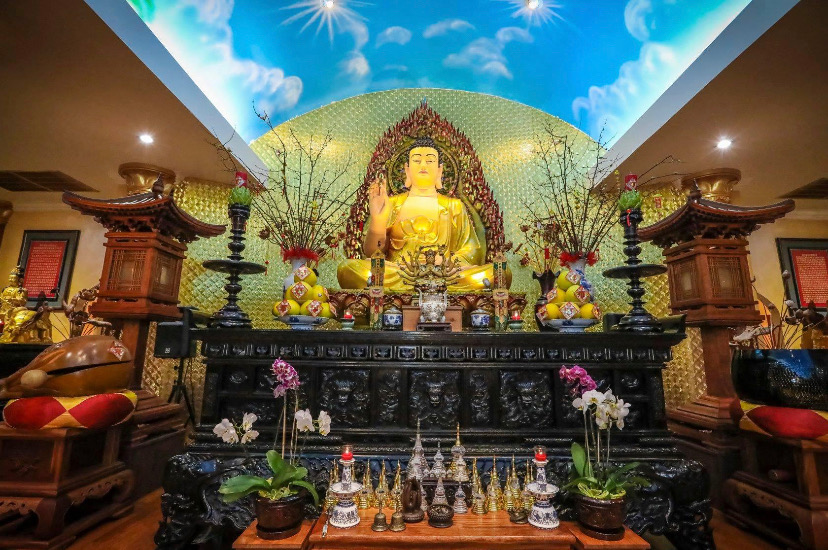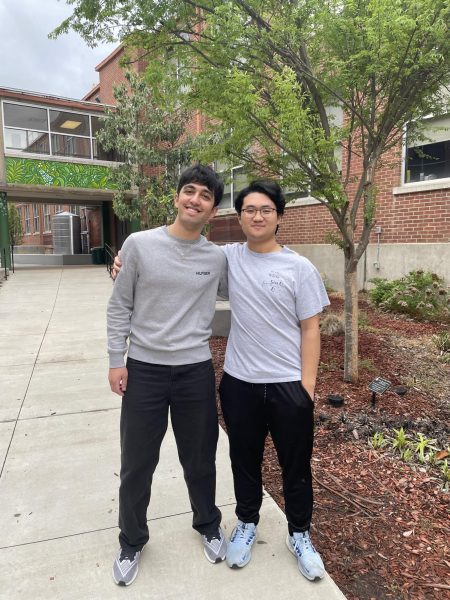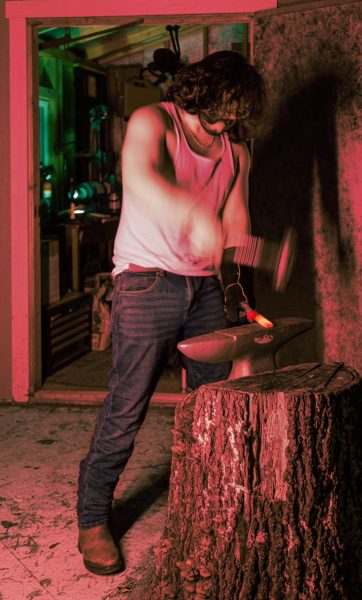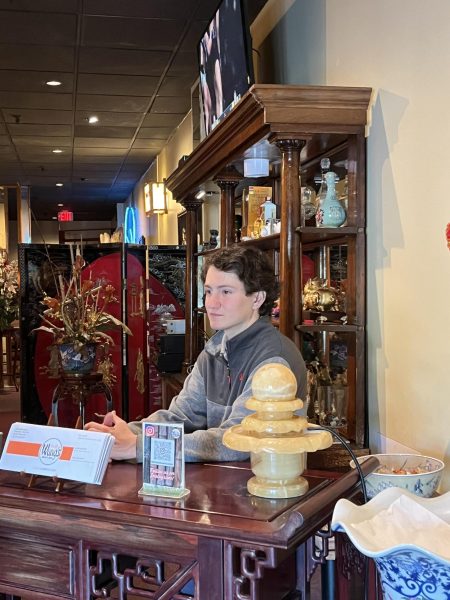Celebrating Lunar New Year
This statue of Buddha can be found at the Quan Am temple, where Lunar New Year Festivities are held. Many Buddhists look up to and pray at this statue.
“Boom, boom, boom …” the sounds of beating drums and firecrackers are heard all throughout the crowd as the Dragon Dance takes place. It’s Feb. 1, which means the start of the Lunar New Year has arrived, and many people of Asian backgrounds gather with family to embrace this festive time.
“It is the most important traditional holiday for all Chinese,” Chinese teacher Yuan Harris said.
Originating in China, the Lunar New Year, which is also called Spring Festival, is now celebrated by multiple Asian cultures. The holiday is based on the lunisolar calendar and has a different date each year. In 2022, the celebrations will take place on Feb. 1. It is a time to wish luck upon the elderly and upon one’s home to start off the New Year right with an optimistic attitude.
“[On] the first day [of the New Year], you’re not supposed to sweep your floor,” Harris said. “You’re not supposed to cut your hair. You just have welcomed new luck, you don’t want to accidentally take out this luck.”
Ensuring a clean house before the start of the New Year is a key tradition; it rids the home of any bad luck from the past year. On the few days following New Year’s, cleaning is not permitted because it is thought to rid the house of any good luck that may have entered.
“It’s all about your house and keeping good luck in your house,” Chiara Pierotti (10) said.
Family meals are typically held on New Year’s Eve. In Pierotti’s family, dishes such as bánh xèo (Vietnamese pancakes), rau câu (Vietnamese jello) and lẩu thái (Vietnamese hot pots) are served. Post meal, she goes with her family to the Buddhist temple to pray, watch fireworks and watch dragon dances.
“My parents would cook a huge meal for New Year’s Eve,” Harris said. “Huge, huge meal. In China, all meals have a significant meaning.”
During the celebrations, families will visit grandparents and relatives, typically giving the children Li xi. Li xi, which translates to lucky money in Vietnamese, is traditionally given in red envelopes to celebrate the New Year.
“My family does it where you get the red envelope and you wish the elderly good luck for the next year,” Ngan Nguyen (10) said. “You wish them, ‘I hope you live a longer life, I hope you eat well,’ in return for the red envelope.”
The origin of the Lunar New Year goes back to the Chinese legend of the monster Nian, who would come out right before the New Year and hunt people. One year, the town was visited by an old man who claimed to be able to take care of the monster, if in return he would receive food and shelter for one night.
“So, that night he prepared right before Nian came,” Harris said. “He decorated the house really red, he had lanterns … the monster is afraid of red, … so when he came into the village and he saw red, he was a little shocked, but he still was bold enough to walk into the door. As soon as he entered the door, the old guy set off firecrackers. That’s why we celebrate [with] firecrackers, because Nian is afraid of firecrackers.”
For Harris, a beautiful tradition held back in China is the Lantern Festival. It is held on the 15th day of the Lunar New Year to signify an end to the celebrations. Streets are decorated with lit lanterns, and people eat traditional rice balls. Celebrants make a wish, light a lantern and push it out into the water.
“It’s a chance to make your wishes before you wrap up the year and officially head into the new year,” Harris said.
Your donation will support the student journalists of White Station High School. Your contribution will allow us to purchase equipment and cover our annual website hosting costs.




































